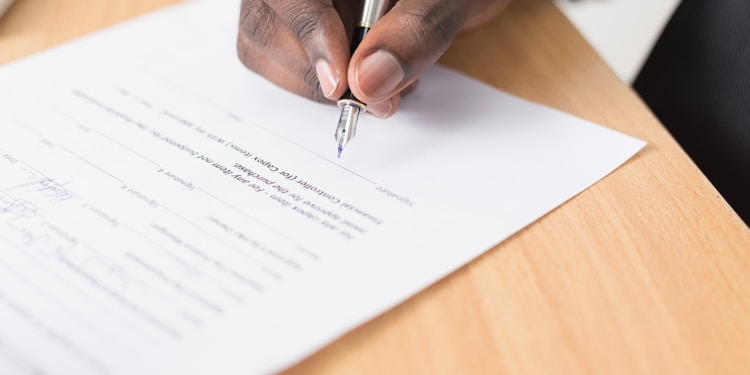Many people find themselves in a difficult position when they are thinking about how to plan for the future. They may have things that need to be taken care of, but not enough assets or income to do so. This article will discuss some things you should consider before writing your living trust, including how it relates to taxes and estate planning.
Learn The Good And Bad Sides
Even though they are useful documents, there are certain things about living trusts you may not like. According to the article found on this URL, there are both pros and cons to creating this legal document. It is important that you learn about both before making a decision.
The good side of things is that once the trust is set up, it can take care of things for you if something happens. You also have more control over your assets than you would if they were just put into a will. Conversely, there are some bad things associated with living trusts as well. One downside is that you may have less say in what happens to your property after you die if it’s handled through a trust. Learn about them before doing anything.
Gather All The Necessary Documents
There are lots of documents you’ll need to gather before writing a living trust. The most important are:
- Your birth certificate or passport
- The death certificate of the person who created the trust
- A document listing all your assets and their value, such as a recent bank statement
- A list of all your debts, such as medical bills
- Your driver’s license or state ID card
Once you have all these documents in hand, it’s time to get started on creating your living trust! Without them, your living trust won’t be valid, so it’s important to get them together before you begin.
Get Legal Counseling
You have to get a good attorney on your side when writing a living trust. You need any loopholes or problems solved before the document is filed with the court. It’s important to get legal counselling on things like asset distribution, estate taxes and whether you should keep anything in joint names (like bank accounts) instead of transferring them into your name as trustee of the trust.
A good attorney can answer questions about who will be executor, what happens if there are complications during life or after death, how to avoid probate fees and ensure assets go where they’re supposed to go without hassle for family members. They’ll also provide insight on things that could complicate things down the road if not handled properly now. For example, having children out of wedlock may cause issues later on since the child won’t legally be able to inherit anything if they aren’t named in the trust.
Consult Your Family
You have to consult your family before you put anything in writing. This is especially important if you’re planning on drawing up a living trust. Your family can help you make sure that everything included in the trust is fair and reasonable from their perspective. They might also have some great ideas for things to include in the trust that you hadn’t considered.
Your family can also offer emotional support during this difficult time. They will likely be affected by your decision to create a living trust, so it’s important to keep them in the loop and get their feedback. Remember, they want what’s best for you, even if they don’t always agree with your decisions!
Get Two Witnesses Who Are Not Beneficiaries
You’ll need trustworthy witnesses to sign your trust document. You cannot use the same witnesses that you used for your will unless they are also attorneys or judges. However, it’s possible to use a bank officer and a notary public who is in good standing with their respective state divisions of licensing.
The witness’ requirement to be either an attorney or judge only applies if they are going to serve as executor though so most people find it’s easier just getting two additional separate witnesses from outside the family. However, make sure these people know what they’re signing!
Appoint An Executor
Find someone you trust to be the executor of your living trust. Most likely, you’ll want to choose a family member such as a spouse or child. This should give you peace of mind because you know that someone who loves and cares for you will be in charge of things after your death.
You should name co-executors to act with the executor, just in case things go wrong or if something happens to one of them. Make sure your choice is willing and able to carry out their duties responsibly because they’re agreeing to take on a lot of responsibility.
A living trust is a complex document with good and bad sides you should know about. Make sure to gather all the documents and consult your attorney to give you useful advice. You should also talk to your family about what you’re about to do. Make sure to have two witnesses and a trustworthy executor so you’d know everything is in order. Good luck!















